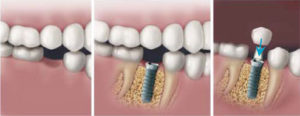Dental Implants
Dental Implants in Vellore – Restore Your Smile with Confidence
Missing teeth can make eating and speaking difficult. They can also affect your confidence. Dental implants are a great solution to replace missing teeth and restore a natural-looking smile. If you are looking for dental implants in Vellore, this guide will help you understand the procedure and benefits.
What Are Dental Implants?
A dental implant is an artificial tooth root made of titanium. It is placed in the jawbone and acts as a strong base for a replacement tooth (crown). Implants look, feel, and function just like natural teeth.
Why Choose Dental Implants?
✔ Long-lasting & Durable – Can last a lifetime with proper care
✔ Natural Look & Feel – Blends with your other teeth
✔ Improves Chewing & Speech – Functions like a real tooth
✔ Prevents Bone Loss – Stimulates the jawbone and maintains facial structure
✔ No Damage to Nearby Teeth – Unlike bridges, implants do not harm surrounding teeth
Dental Implant Procedure
1️⃣ Consultation & Examination – The dentist checks your jawbone and overall oral health.
2️⃣ Implant Placement – A titanium post is placed in the jawbone.
3️⃣ Healing Period – The bone fuses with the implant (takes a few months).
4️⃣ Crown Attachment – A custom-made tooth is placed on the implant.
Best Dental Implants in Vellore
For high-quality dental implant treatment in Vellore, visit a trusted dental clinic. Choose an experienced implant specialist for safe, painless, and long-lasting results.
Don’t let missing teeth affect your confidence! Book a consultation today for the best dental implants in Vellore and restore your perfect smile.
A dental implant is a titanium post (like a tooth root) that is surgically positioned into the jawbone beneath the gum line that allows dentist to mount replacement teeth or a bridge into that area.
Dental implants also benefit general oral health because they do not have to be anchored to other teeth, like bridges.
How do Dental Implants Work ?
Because implants fuse to your jawbone, they provide stable support for artificial teeth. Dentures and bridges mounted to implants won’t slip or shift in your mouth — an especially important benefit when eating and speaking. This secure fit helps the dentures and bridges — as well as individual crowns placed over implants — feel more natural than conventional bridges or dentures.
For some people, ordinary bridges and dentures are simply not comfortable or even possible, due to sore spots, poor ridges or gagging. In addition, ordinary bridges must be attached to teeth on either side of the space left by the missing tooth. An advantage of implants is that no adjacent teeth need to be prepared or ground down to hold your new replacement tooth/teeth in place.
To receive implants, you need to have healthy gums and adequate bone to support the implant. You must also commit to keeping these structures healthy.

Implants offer a very stable and secure fit.

Implants serve as a base for single replacement of teeth

Implants offer a very stable and secure fit

Implants serve as a base for single replacement of teeth
Oral care tips for Implants
Most dental implants are successful, and there are a few steps you can take to help ensure success and make your implant last.
- Practice good oral hygiene – brush twice a day and floss once daily. Using interdental brushes, brushes that slide between teeth, can help clean the hard to reach areas around your implant.
- Quit smoking – smoking can weaken the bone structure and can contribute to implant failure.
- Visit your dentist – cleanings and exams every six months can help ensure your implant is in good condition, and that it stays that way.


